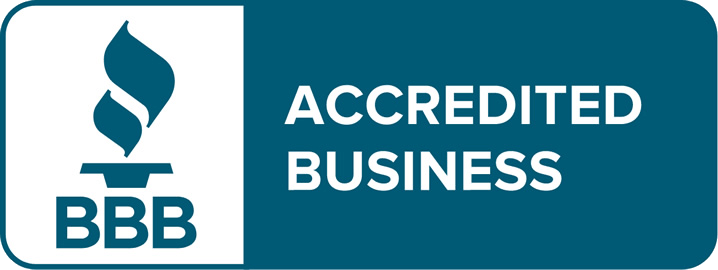When it comes to tax issues, it’s important to have the right representation to help navigate the complex tax system. Many individuals and businesses turn to tax attorneys for assistance, but finding a tax attorney near you can be a challenge. In this article, we’ll explore the problems that arise when you enter your search for a “tax attorney near me,” and offer some solutions.
Table of Contents
- What Is A Tax Attorney?
- Do You Need a Lawyer to Negotiate with the IRS?
- The Challenges of Finding a Tax Attorney
- Why do People hire Enrolled Agents over Tax Attorneys for IRS and State Taxing Authority Negotiations?
- Situations Where a Tax Attorney can Help
- Should You Get an Attorney for an IRS Audit?
- How to Avoid Difficult Negotiations with the IRS
- How to Find an Enrolled Agent Near You
What is a Tax Attorney?

A tax attorney is a legal professional who specializes in tax law. Tax attorneys typically have a Juris Doctor (JD) degree and have completed additional coursework or training in tax law. They may also hold an advanced degree in taxation, such as a Master of Laws (LLM) or a Master of Taxation (MTax).
Tax attorneys can provide a wide range of services related to tax law, including assisting individuals and businesses with tax planning, representing clients during IRS audits, negotiating tax settlements with the IRS or state taxing authorities, and representing clients in tax court.
In addition to their knowledge of tax law, tax attorneys may also have expertise in other areas of law, such as estate planning, corporate law, or bankruptcy law. This can be helpful for clients who have complex tax issues that intersect with other areas of the law.
However, for many tax issues, such as negotiations with the IRS or state taxing authorities, an Enrolled Agent may be a more cost-effective and experienced choice.
Do You Need a Lawyer to Negotiate with the IRS?

While many individuals may turn to tax attorneys for assistance, it’s important to understand that an attorney is not always necessary for negotiations with the IRS. In fact, Enrolled Agents are licensed tax professionals who specialize in taxation and are authorized to represent taxpayers before the IRS. They have extensive training and experience in dealing with the IRS and state taxing authorities, and have a deep understanding of tax laws and regulations. Enrolled Agents have passed a rigorous exam and must also meet ongoing education requirements to maintain their licensure.
Enrolled Agents are often more accessible and affordable than tax attorneys. Additionally, many Enrolled Agents have years of experience in dealing with the IRS and state taxing authorities.
With that said, tax attorneys can be helpful for certain tax issues that require litigation or representation in tax court. However, for most tax issues, an Enrolled Agent can be a more suitable choice for negotiations with the IRS and state taxing authorities. They can assist with a wide range of tax issues such as audits, appeals, collections, and tax resolution.
The Challenges of Finding a Tax Attorney

One of the major challenges in finding a licensed tax attorney near you is that tax law is a specialized area of law. Not all law firms or attorneys specialize in tax law, which can make it difficult to find a qualified and experienced tax attorney in your local area.
In addition, even if there are tax attorneys in your area, they may not be a good fit for your specific needs. Tax law is a complex field, and different attorneys may have different areas of expertise or specialize in different types of tax issues. A visit to your local irs office can be an eye opening experience about how nuanced the tax code is.
Furthermore, even if you are able to find qualified and experienced tax lawyers near you, the cost of their services may be prohibitively expensive for some individuals or small businesses.
Potential Solutions
Despite the challenges of finding a tax lawyer near me, there are several potential solutions to consider:
Expand Your Search
Many tax relief companies offer their services remotely, so you may be able to work with a company from a different state.
Utilize Online Resources
Turn to Google to read real client reviews. Google the word “tax resolution” and read through reviews to see what their clients have to say.
Ask for Referrals
If you know other individuals or businesses who have faced tax issues, consider asking for referrals. They may be able to recommend a qualified tax professional who can help you with your specific needs.
Consider Enrolled Agents
Enrolled Agents are licensed tax professionals who are authorized to represent taxpayers before the IRS. They specialize in taxation and are often more cost-effective than tax attorneys. Consider working with an Enrolled Agent if you’re having trouble finding a tax attorney near you.
Get a free consultation
We Are Committed To Finding SolutionsLearn MoreWhy do People hire Enrolled Agents over Tax Attorneys for IRS and State Taxing Authority Negotiations?

While tax attorneys are often thought of as the go-to professionals for tax-related issues, Enrolled Agents (EAs) can also be highly effective in negotiating with tax authorities.
Enrolled Agents must pass a rigorous three-part exam covering individual and business tax returns, and must also undergo ongoing continuing education requirements.
Unlike tax attorneys, Enrolled Agents specialize in taxation and are not trained in other areas of law. This means that their expertise is focused solely on tax-related issues, which can be an advantage when it comes to negotiating with tax authorities.
Advantages of Using an Enrolled Agent

More Cost-Effective
One of the main advantages of using an Enrolled Agent over a tax attorney is cost. Enrolled Agents typically charge lower fees than tax attorneys, which can be especially beneficial for small business owners or individuals who are facing financial difficulties.

Specialized Knowledge
Enrolled Agents are experts in taxation and are highly knowledgeable about tax law and procedures. They are well-versed in tax-related issues such as audits, tax debt collections, and appeals, and are trained to provide tax planning and preparation services. This specialized knowledge can be invaluable when it comes to negotiating with the IRS or state taxing authorities.

More Personalized Service
Enrolled Agents often provide more personalized service than tax attorneys, who may have a larger client base and may not be able to provide the same level of attention to individual clients. Enrolled Agents typically work with smaller groups of clients and can provide more one-on-one attention to help clients navigate the tax system. Just like attorney-client privilege, enrolled agents provide high levels of confidentiality for their clients.

More Experience in Tax Negotiations
Enrolled Agents are required to have at least five years of experience working in taxation before they can become licensed. This means that they often have more experience in tax negotiations than tax attorneys, who may have less experience dealing specifically with the internal revenue service and state taxing authorities.

Able to Practice Nationwide
Enrolled Agents are authorized to practice in all 50 states, whereas tax attorneys are licensed on a state-by-state basis. This means that Enrolled Agents can represent clients in any state, which can be particularly beneficial for clients who have multi-state tax issues.

No Conflict of Interest
Tax attorneys often work for law firms that also provide other legal services, such as estate planning or business law. This can create a conflict of interest if the tax issue is related to another area of law. Enrolled Agents, on the other hand, are focused solely on tax-related issues and do not have any conflicts of interest.

Better Understanding of Taxpayers’ Needs
Enrolled Agents are required to pass a comprehensive exam that tests their knowledge of tax law and procedures, and must also undergo ongoing continuing education. This education and training help Enrolled Agents stay up-to-date on the latest tax laws and regulations, which in turn allows them to understand their client’s needs better and provide more effective representation.
Situations Where a Tax Attorney Can Help
A tax attorney is suited to help in a variety of situations that an enrolled agent would not, including:

Tax Planning:
A tax attorney can help individuals and businesses plan their tax strategies to minimize their tax liabilities. They’re familiar with business tax law, and tax deductions, and can provide legal counsel on a variety of legal issues around starting, growing, and selling a business.

Business Transactions:
When a business is considering mergers, acquisitions, or other complex business transactions, a tax attorney can provide guidance on the tax implications of these transactions.

International Taxation:
For individuals and businesses with international tax obligations or investments, a tax attorney can provide guidance on compliance with complex international tax laws and treaties.

Estate Planning:
A tax attorney can help individuals plan their estates to minimize estate and gift taxes and ensure that their assets are distributed according to their wishes.

Nonprofit Organizations:
A tax attorney can assist nonprofit organizations with tax compliance, obtaining tax-exempt status, and navigating complex tax rules that apply to nonprofits.

Criminal Tax Matters:
In cases where an individual or business is facing criminal prosecution related to tax evasion, tax fraud, or other tax crimes, a tax attorney can provide legal representation and defense.
We Are Committed To Finding Solutions
Learn MoreShould You Get an Attorney for an IRS Audit?

Whether or not you should get an attorney for a tax audit depends on the specific circumstances of your case. In many cases, an Enrolled Agent may be a more suitable and cost-effective choice for representation during an IRS audit.
Enrolled Agents can provide representation during an IRS audit, which involves the IRS reviewing your tax return and supporting documents to ensure that they are accurate and complete. During an audit, an Enrolled Agent can assist with gathering and organizing documentation, preparing responses to IRS inquiries, and negotiating with the IRS on your behalf.
While a tax attorney can also provide representation during an IRS audit, they may be more expensive than an Enrolled Agent. Additionally, for many audit cases, the expertise and experience of an Enrolled Agent may be more than sufficient to handle the situation.
How to Avoid Difficult Negotiations with the IRS
Negotiating with the IRS can be a daunting task, but there are steps you can take to help avoid difficult negotiations with them. Here are some tips to keep in mind:
 File Your Tax Returns on Time
File Your Tax Returns on Time
One of the simplest ways to avoid difficult negotiations with the IRS is to file your tax returns on time. Late filings can lead to interest and penalties, which can increase the amount you owe and make negotiations more difficult.
 Keep Good Records
Keep Good Records
Keeping good records can help you avoid disputes with the IRS. Make sure to keep copies of all tax-related documents, including receipts, invoices, and bank statements, for at least three years.
 Respond to IRS Notices Promptly
Respond to IRS Notices Promptly
If you receive a notice from the IRS, make sure to respond promptly. Ignoring notices can lead to additional interest and penalties, and can make negotiations more difficult.
 Be Honest and Transparent
Be Honest and Transparent
When communicating with the IRS, be honest and transparent about your financial situation. If you try to hide assets or income, the IRS may view it as tax evasion, which can lead to serious consequences.
 Negotiate in Good Faith
Negotiate in Good Faith
When negotiating with the IRS, it’s important to negotiate in good faith. Be open to compromise and be willing to work with the IRS to find a resolution that is fair to both parties.
 Consider Hiring a Licensed Tax Professional
Consider Hiring a Licensed Tax Professional
If you are facing a complex tax issue or negotiation with the IRS, consider hiring a licensed tax professional, such as an Enrolled Agent. They have experience in dealing with the IRS and state taxing authorities and can provide valuable assistance in resolving tax issues.
Not ready to talk to someone?
Let us email you some general information about our process.Learn MoreHow to Find an Enrolled Agent Near You

When you’re looking for help with tax-related issues you don’t really need to find someone locally to help you. What’s most important is working with a company that is licensed and experienced. Firms that work nationwide are your best bet when it comes to finding reliable and affordable tax relief representation.
20/20 Tax Resolution are nationwide go-to experts when it comes to IRS tax resolution help. We’re a network of experts and enrolled agents that serve individuals and businesses nationwide. 20/20 Tax Resolution has helped over 32,000 businesses and individuals reach successful resolutions with their IRS and state tax liabilities.
The first step is contacting us for a free consultation. You tell us about your situation, and an experienced tax professional will lay out your options and the best way forward.



